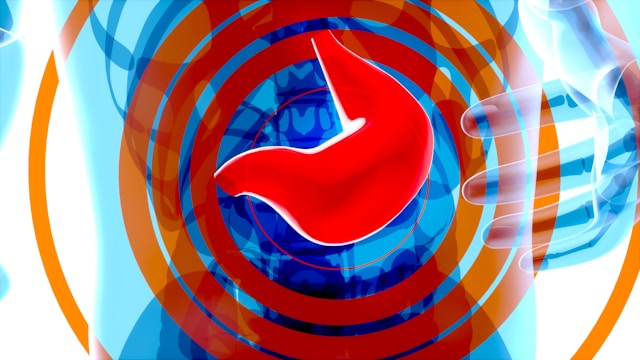About the Author
Joe Gilmore is a professional writer for The Hope House, an organization dedicated to providing clients with the highest quality of addiction treatment possible while staying in their luxurious Arizona rehabs. Joe has worked in the addiction space for the last three years. He works closely with therapists and nurse practitioners on researching the latest therapies. Alex Spritzer, Nurse Practitioner at The Hope House (MSN, FNP-C, CARN-AP) medically reviewed the article for accuracy.
How Alternative Addiction Treatment Leads to Long-Term Sobriety
When it comes to addiction treatment, there is no one-size-fits-all approach. There are many different routes people can take to achieve their ultimate goal: long-term sobriety. For some, this means going through a detox program and residential treatment. There are also holistic alternative addiction treatment options in conjunction with traditional therapy.
Below are six most common therapies for those in addiction treatment.
6 Most Common Alternative Therapies
-
Massage Therapy
When we think of massages, we often think of enjoying a day spa, hanging out by the pool, and being in a complete state of relaxation. While this can be the case for many, it is also a tool used in addiction treatment to help patients not only relax, but work to overcome their substance use disorder.
Massage therapy in rehab aims to do many things to help those in treatment, including:
- Release endorphins
- Reduce pain
- Increase relaxation
- Relieve stress
- Help with trauma
- Enhance self-awareness
Whether a client needs help with their post-detox slump, or if they just need help relaxing and easing their anxieties about treatment, massage therapy has a lot to offer clients dealing with substance abuse.
-
Acupuncture
Along with massage therapy, acupuncture is an alternative form of addiction treatment that can help patients relax and work toward long-term sobriety.
The most common form of acupuncture used in addiction therapy is ear acupuncture. It can help people overcome alcohol abuse, prescription drug abuse, and more. Specifically, there are five points in the ear used in acupuncture:
Autonomic Point: this point is used to calm the nervous system and help with relaxation
Liver Point: this point promotes detoxification, blood purification, and curbs aggression
Kidney Point: treating the kidney point will help calm fears a client may be feeling and help to heal the internal organs
Lung Point: the lung point is used to improve overall lung function and help clients let go of grief
Shen Men: Shen Men, or the Spirit Gate, is used to help reduce overall anxiety and nervousness
These are acupuncture points proven to help reduce cravings, relieve stress, regulate sleep, and keep patients in treatment longer. Easing these problems, along with the physical pain associated with alcohol detox or drug detox, will help with overall long-term sobriety.
-
Exercise
Exercise programs are used as a complementary form of treatment in rehab centers across the globe. Not only can it help improve overall health, cope with urges to use, and help with relapse prevention, but it is also a tool a patient can use upon discharge to help them stay on the straight and narrow.
The overall effectiveness of exercise as an addiction treatment will vary from person to person, but when combined with therapy, exercise can be a benefit to the treatment process. In fact, exercise has shown to substantially improve abstinence rates among patients.
When it comes to alcoholism specifically, behavioral scientists have suggested it may be a solid prevention strategy for relapse. Exercise can help:
- Provide pleasurable states without the use of drugs or alcohol
- Reduce depressive symptoms and negative mood
- Increase self-efficacy
- Improve coping
- Decrease urges in drinking
Along with physical health improvements, many treatment centers rely on exercise therapy to improve a patient’s mental state as well. Both Lakeview Health and Hope House utilize exercise as a key tool, in recovery.
-
Mindfulness
For many people dealing with a substance abuse problem, it can be a direct result of underlying mental health problems such as depression, anxiety, trauma, and more. During addiction treatment, if patients want to overcome their addiction to opioids or alcohol abuse, they must face these problems head-on. This is where mindfulness practices and meditation come into play.
Mindfulness in addiction treatment can help a patient come to terms with mental health issues and take steps toward increasing long term sobriety and overall health.
Mindfulness exercises can lead to improved:
- Physical health
- Enhanced social functioning
- Improved emotional state
- Cognitive ability
- Mental health
All of these benefits will help anyone dealing with addiction or mental health issues. Both Lakeview Health and The Hope House utilize Mindfulness therapy.
Mindfulness practices can occur in different ways, but many begin with a focus on staying in tune with their breathing and being mentally present.
These simple breathing exercises can go a long way toward improving problems related to stress, anxiety, depression, and coping – all of which are underlying problems which may contribute to substance abuse.
-
Virtual Reality
One of the newer, most cutting-edge forms of addiction treatment is done through virtual reality. While virtual reality for addiction treatment is still in the early stages of development, studies have shown it can be effective in helping patients avoid relapse and cut down on urges they feel to use.
Virtual reality addiction treatment is done by putting clients in a simulated environment which would normally make them triggered to want to use. This means exposing them to virtual craving-inducing stimuli (such as a party scene or bar). During this immersion an addiction professional coaches clients through the scenario and helps them learn how to react to the situation.
Essentially, by confronting these stimuli in a controlled, safe environment, it prepares the individual to confront them in the real world.
While more research is needed to be done on just how effective virtual reality can be, it has been shown to have some promising results.
-
Somatic Experiencing
Post-Traumatic Stress Disorder (PTSD) is one of the most common co-occurring disorders for those dealing with substance abuse problems — this co-occurrence is referred to as a dual diagnosis. Often, people who have gone through traumatic experiences in the past, especially as a child, run a much higher risk of abusing substances and dealing with addiction issues later in life.
To give a patient struggling with past trauma the best chance at long-term sobriety, they will need to confront this problem and work to reduce or eliminate PTSD symptoms. This is where a treatment called Somatic Experiencing can help.
Somatic Experiencing is a body-focused form of therapy used to help people dealing with PTSD. Essentially, the therapy focuses on creating awareness of sensations the body is feeling which may be carriers of the traumatic event.
Evidence shows Somatic Experiencing is effective for PTSD treatment, with one study showing over 44% of people lost the PTSD diagnosis completely after completing treatment. Along with PTSD, Somatic Experiencing can have a large effect on depressive symptoms as well.
Finding Help for Addiction
While alternative therapy may be supportive to your sobriety, it is not a replacement for traditional therapies. Recovery is a journey and one that requires a comprehensive treatment plan focused on healing your mind and body.
For help determining your next steps to sobriety, contact the addiction specialists at Lakeview Health on the East Coast and at The Hope House on the West Coast for more information.




